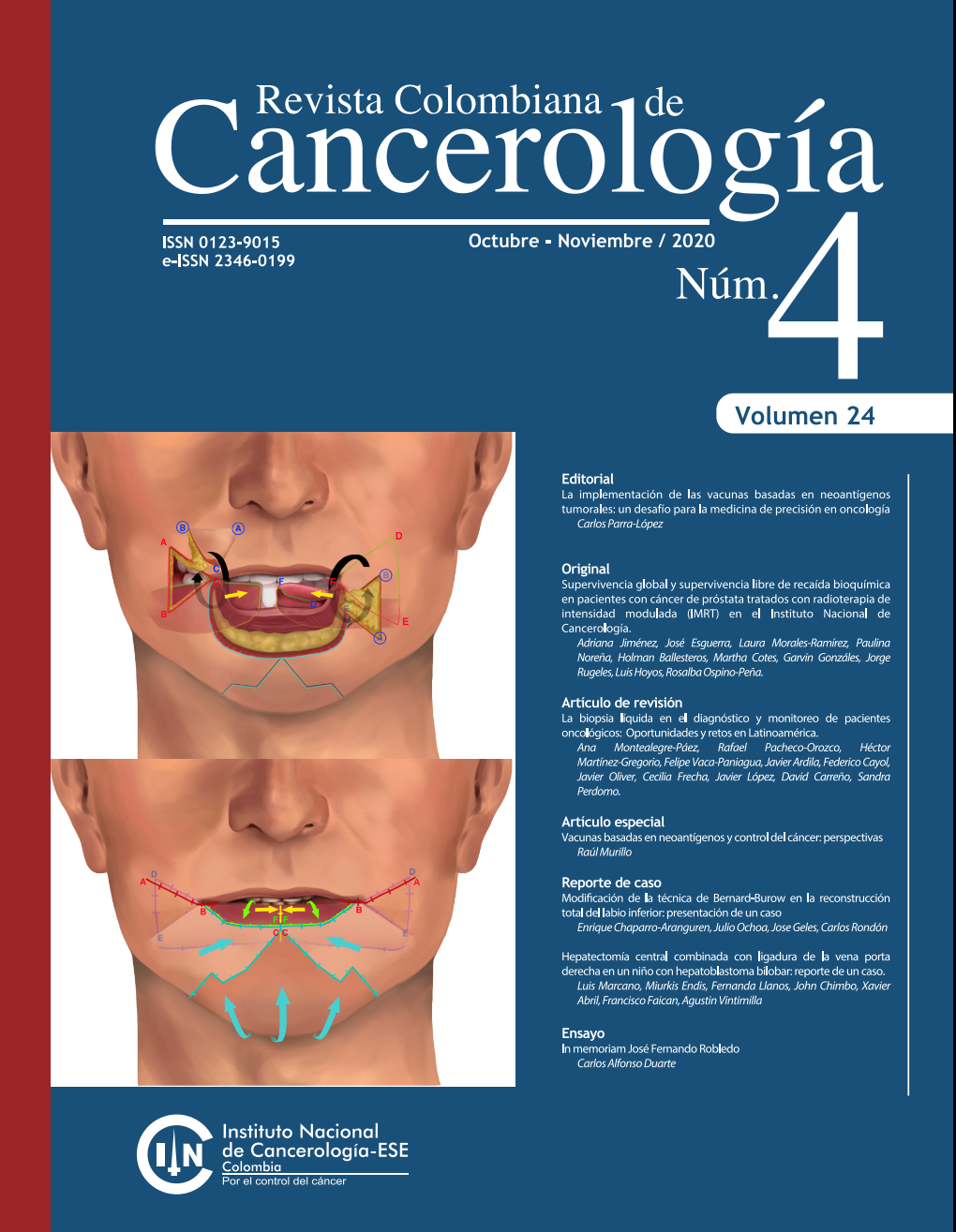The implementation of neoantigen-based tumor vaccines: a formidable challenge for precision medicine in oncology.
DOI:
https://doi.org/10.35509/01239015.713Abstract
En el año 2002 el grupo de Rosenberg en el Instituto Nacional de Cáncer en Estados Unidos demostró por primera vez que los linfocitos T pueden mediar regresiones tumorales notables, incluida la curación completa de pacientes con cáncer metastásico (1). Estos resultados logrados con la transferencia adoptiva de linfocitos T infiltrantes de tumor amplificados in vitro y luego restituidos al paciente, fue seguido de la implementación exitosa de terapias celulares con células CAR-T y el uso de anticuerpos anti-punto de control para el tratamiento de los tumores, con lo cual la Inmunoterapia junto a la Cirugía, la Quimioterapia y la Radioterapia se ha posicionado como el cuarto pilar de tratamiento del cáncer.
References
Dudley ME, Wunderlich JR, Robbins PF, Yang JC, Hwu P, Schwartzentruber DJ, et al. Cancer regression and autoimmunity in patients after clonal repopulation with antitumor lymphocytes. Science. 2002;298(5594):850-4.
Ott PA, Hu Z, Keskin DB, Shukla SA, Sun J, Bozym DJ, et al. An immunogenic personal neoantigen vaccine for patients with melanoma. Nature. 2017;547(7662):217-21.
Dunn GP, Old LJ, Schreiber RD. The three Es of cancer immunoediting. Annu Rev Immunol. 2004;22:329-60.
Balachandran VP, Luksza M, Zhao JN, Makarov V, Moral JA, Remark R, et al. Identification of unique neoantigen qualities in long-term survivors of pancreatic cancer. Nature. 2017;551(7681):512-6.
Hundal J, Carreno BM, Petti AA, Linette GP, Griffith OL, Mardis ER, et al. pVAC-Seq: A genome-guided in silico approach to identifying tumor neoantigens. Genome Med. 2016;8(1):11.
Ward JP, Gubin MM, Schreiber RD. The Role of Neoantigens in Naturally Occurring and Therapeutically Induced Immune Responses to Cancer. Adv Immunol. 2016;130:25-74.
WHO. Pricing of cancer medicines and its impacts. Geneva. 2018.
Turajlic S, Litchfield K, Xu H, Rosenthal R, McGranahan N, Reading JL, et al. Insertion-and-deletion-derived tumour-specific neoantigens and the immunogenic phenotype: a pan-cancer analysis. The lancet oncology. 2017;18(8):1009-21.
Koster J, Plasterk RHA. A library of Neo Open Reading Frame peptides (NOPs) as a sustainable resource of common neoantigens in up to 50% of cancer patients. Scientific reports. 2019;9(1):6577.
Jiang T, Shi T, Zhang H, Hu J, Song Y, Wei J, et al. Tumor neoantigens: from basic research to clinical applications. Journal of hematology & oncology. 2019;12(1):93.
Sahin U, Derhovanessian E, Miller M, Kloke BP, Simon P, Lower M, et al. Personalized RNA mutanome vaccines mobilize poly-specific therapeutic immunity against cancer. Nature. 2017;547(7662):222-6.
Carreno BM, Magrini V, Becker-Hapak M, Kaabinejadian S, Hundal J, Petti AA, et al. Cancer immunotherapy. A dendritic cell vaccine increases the breadth and diversity of melanoma neoantigen-specific T cells. Science. 2015;348(6236):803-8.156
How to Cite
Downloads
Downloads
Published
Issue
Section
License
Todos los derechos reservados.





